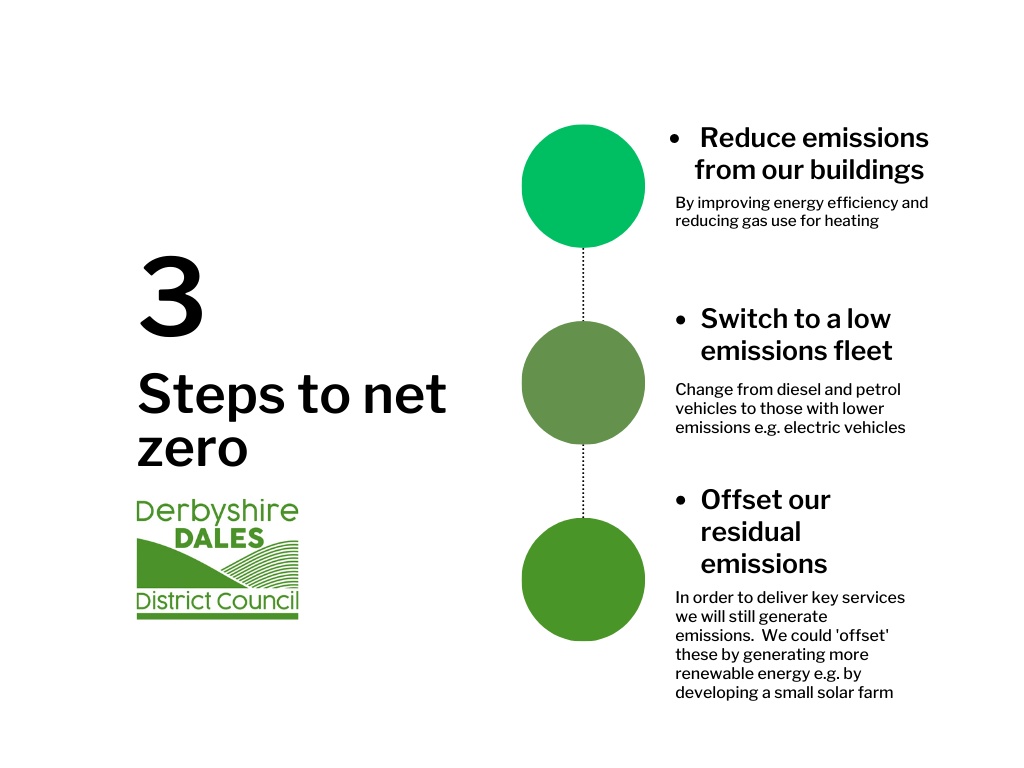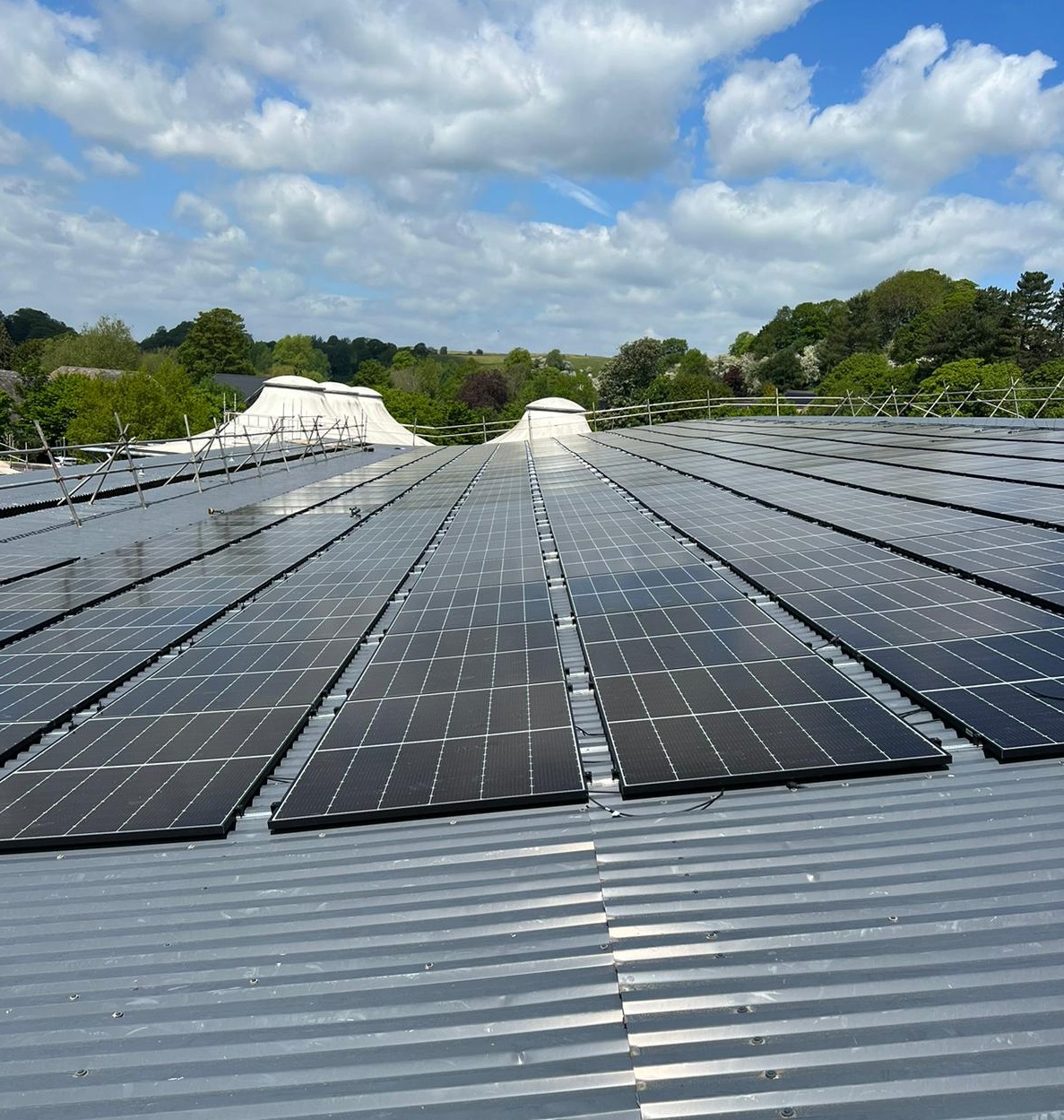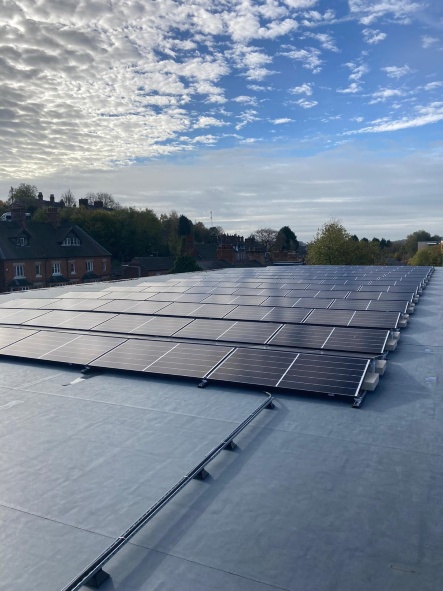Derbyshire Dales District Council is committed to doing its part to tackle climate change. The Council resolved unanimously at its meeting on 30 May 2019 to:
- Declare a Climate Emergency
- Make Derbyshire Dales District Council carbon neutral by 2030
- Call on the UK Government to provide the powers and resources to make the 2030 target possible
- Work with partners across the county and region to deliver this new goal through all relevant strategies
At its meeting on 25 July 2019 the Council agreed to form a Climate Change Working Group, proposed to act as an advisory body to Council, to develop thinking and actions required to deliver upon the commitment to make the Council carbon neutral by 2030.
View a timeline of all of the Council’s decisions relating to climate change.
What does being carbon neutral mean?
In simple terms ‘carbon’ is often used as a shorthand for carbon dioxide, the primary greenhouse gas, and by extension for greenhouse gases as a whole. ‘Net zero’ or ‘carbon neutral’ refers to a situation where the total greenhouse gases produced (by an organisation, business or individual) are equal to those offset, removed or avoided. This is not the same as zero carbon, where no greenhouses gases are produced
How can we become carbon neutral?
The Council has agreed a Climate Strategy and Action Plan to ensure we meet our carbon neutral target by 2030.
The Action Plan sets out a potential pathway to achieving this in terms of the District Council’s direct emissions.

The Council has a dedicated Climate Change Project Officer to provide resource to keep these projects on track and apply for the relevant funding.
An update on progress towards our target can be seen in the timeline of all of the Council’s decisions and actions
You can direct any questions on our strategy to
What have we achieved so far?
Buildings - Reducing emissions from public buildings
Emissions from Council buildings make up a significant portion of our carbon footprint - 416 tonnes of carbon in 2019-20.
In order to address these emissions the Council successfully applied for £562k of funding from the Public Sector Decarbonisation Scheme phase 3a (PSDS) in October 2021. The PSDS provides grants for public sector bodies to fund heat decarbonisation and energy efficiency measures, putting the public sector at the forefront of decarbonising buildings in the UK. The total project value is £1.3m with the additional funding provided from the Councils own reserves.
The project completed in late 2023 and included the installation of further LED lighting, improved insulation and energy efficient windows in part of the Town Hall in Matlock. The existing end of life gas boilers have been replaced by low carbon heat pumps.
At the Agricultural Business Centre in Bakewell the old radiant gas heaters have been replaced by electric infrared heaters and 355 roof mounted solar PV panels have been installed to generate electricity.

Solar panels on the ABC at Bakewell
The project should reduce emissions from Council buildings by 81 tonnes of carbon a year.
In Summer 2024 we will begin a project at Northwood Depot in Darley Dale, also funded part funded through the Public Sector Decarbonisation scheme to improve the energy efficiency of the building and reduce emissions.
Housing - Tacking energy inefficiency in housing and fighting fuel poverty
As part of an estate regeneration project started in 2019 the Council identified 46 non-traditional owner occupied homes that required improvement. These homes had EPC ratings of E/F and many of the owners were in fuel poverty.
In consultation with owners a £110K pilot project was developed to improve 11 of the properties. The pilot progressed well and enabled a successful bid for Local Authority Delivery Green Homes Grant funding of £760K, meaning a further 53 non-traditional homes could benefit from the scheme, along with 50 social housing properties and 6 almshouses.
Including match funding, the total investment in the project was £1.3M, with 120 homes across the public and private sectors being improved. EPC ratings have improved from E/F to a minimum of C and average fuel bill savings for residents are around 40%. We believe carbon savings are around 90 tonnes per year.
In a subsequent round of Local Authority Delivery Green Homes Grant funding administered via local energy hubs the Council received a further £626k, which was combined with £143k partner contributions. This allowed 50 social homes owned by Platform spread across the district and 20 owner occupied homes where residents were in fuel poverty in Hognaston and Matlock to be improved. The homes received a mix of insulation, solar panels and low carbon heating.
During 2022-23 the Council delivered the 'Sustainable Warmth' scheme. Through a consortium bid led by Nottingham City Council the Council was successful in gaining just over £900k of funding which was used to improve private housing across the district. In total 60 fuel poor homes across the district benefited from insulation, solar panels and low carbon heating.
Through a further successful consortium bid led by Nottingham City Council the Council was successful in being awarded Home Upgrade Grant funding of just under £1.9m to March 2025 which is currently (March 2024) delivering fully funded energy efficiency improvements to low income off gas homes across the district. Applications to the scheme are open via our partner Marches Energy Agency.
To date the work that the Council has delivered to improve housing has resulted in emissions reductions of over 380 tonnes of carbon a year.
Leisure - Reducing the carbon footprint of our Leisure Centres
The Council has invested £233k in energy saving measures at the several of its outsourced leisure facilities since 2018 in order to reduce the carbon footprint and reduce energy consumption.This has included:
- LED lighting upgrades to the Pool Halls, Sports Halls, Gyms & studios
- Pool circulation controls upgrades and optimisation
- Upgrades to wet side boilers and improved water control for example waste water recycling of pre-heated pool sample water
- Eco/low flow shower units
- Upgrade of all four Centres gas and electric meters
- Upgrades to air handling units
These upgrades have resulted in a saving of 127 tonnes of carbon per year.
Through a further partnership with our leisure provider and following a successful bid to the PSDS phase 1, the Council has now completed a £734K scheme to decarbonise the heating, install solar PV and a building energy management system at Ashbourne Leisure centre. These works are predicted to deliver an annual carbon saving of 123 tonnes - around 56% of the current site emissions.

Solar PV panels at Ashbourne Leisure Centre
The Council was successful in securing £123k from the Low Carbon Skills Fund to develop heat decarbonisation plans for the Arc Leisure Centre in Matlock, Wirksworth Leisure Centre and Bakewell Leisure Centre. These plan set out the options and costs for reducing emissions from the centres. Subsequently the Council made a third successful bid to the PSDS3b for £1.9M in February 2023. The total value of the project is £2.1M and will include the removal of current life expired gas boilers and replacement with low carbon heat pumps at both sites. Solar PV panels will be installed on the roof of each centre to reduce running costs.
When complete, in March 2025, the project should reduce emissions by 303 tonnes carbon a year across both sites.
Events - Matlock Bath Illuminations – saving cost and carbon
The Council organise the popular Matlock Bath Illuminations. Following discussions with a local climate change group the Council reviewed the climate change and environmental impact of the event.
Subsequently the Council approved that £15k of the 2018 profits (£27k) would be reinvested into the event. This investment was used in the first phase of upgrading the lights used for the event and to improve the energy consumption levels.
Through the light replacement project the Council were able to demonstrate a 91% reduction in energy consumption with a carbon saving of 1.9 tonnes per year.
The Council have also challenged the impact of our suppliers through the tendering process and during the 2019 event only compostable cups were offered by the bar.
Parks - Idling ice cream vans
Council officers have worked with local Parish/Town Councils to explore the feasibility of requiring all ice cream vans standing on Council owned land to operate electrically rather than idling engines to power refrigeration and machinery.
The Council committed to investing £35k to install electric points for all 9 of its current van locations. Acknowledging the value of these contracts the decision was taken to only allow vans to stand on land owned by the Council if they had the ability to operate electrically from August 2023.
As part of this project officers are working closely with the vendors to support them to make the change from conventional vehicles to electric vehicles. Taking into account the average age of the vehicles it’s estimated that this initiative will save 28 tonnes of carbon a year.
Organisation - Agile working – looking to the future
The Council, like many organisations and businesses, has been forced to change the way we work during the pandemic. Recognising the potential benefits to both employees and the environment of home working the Council has embraced an agile working policy. We have invested in laptops to allow more remote working, Zoom accounts so people can continue to attend meetings and £30k to introduce a new long term internet based telephony system.
Acknowledging the impact that staff commuting has on carbon emissions, as well as offering more flexibility to work from home, the Council allow employees to access an increased amount of £2k from the cycle to work scheme.
Transport - Electric vehicle infrastructure
We have EV charging points in car parks in our main towns of Matlock, Wirksworth, Ashbourne and Bakewell. A further roll out is planned in 8 more of our car parks by Summer 2025. More details can be found in our approved Interim EV strategy
Sustainable Procurement - Reducing the impact of what we buy
The Council has Sustainable Procurement Policy that sets out how we support and challenge our suppliers to consider the climate change impacts of the supply of goods and services. The policy looks to embed good practice in sustainable procurement in day to day working as part of the procurement process and makes specific commitments to:
- Build a requirement for carbon reduction into the specification of certain contracts, where appropriate. This should include steps to reduce the carbon emissions of business activities as well as in the goods and services provided
- Ask and support suppliers in setting ambitious targets to carbon reduction through the life of relevant contracts, and set out clear ways for measuring and reporting these impacts
- Ask suppliers to take steps to ensure that the goods and services that they provide do not increase the District's vulnerability to the negative impacts of climate change
- Encourage suppliers to reduce waste and promote re-use, re-manufacture and recycling at every level of the supply chain
Planning - New development
One big public concern is the impact of new built development on the climate and environment. Our approved Climate Change Supplementary Planning Document (SPD) provides additional guidance to applicants in the following key areas: green infrastructure, water including managing flood risk, energy, transport and building design.
The Council is also reviewing the Local Plan - a very important document, as it sets out the overall vision, objectives, and policies for the future development of those parts of the Derbyshire Dales that lie outside the Peak District National Park.
Biodiversity - Open spaces and verges
Climate change is a significant cause of biodiversity loss. Biodiversity can support efforts to reduce the effects of climate change. Conserved or restored habitats can remove carbon dioxide from the atmosphere as well as reducing the disastrous impacts of climate change such as flooding and storm surges. The Council has set up a Biodiversity Working Group looking at ways in which the Council can increase biodiversity in the road verges and open spaces it manages.

